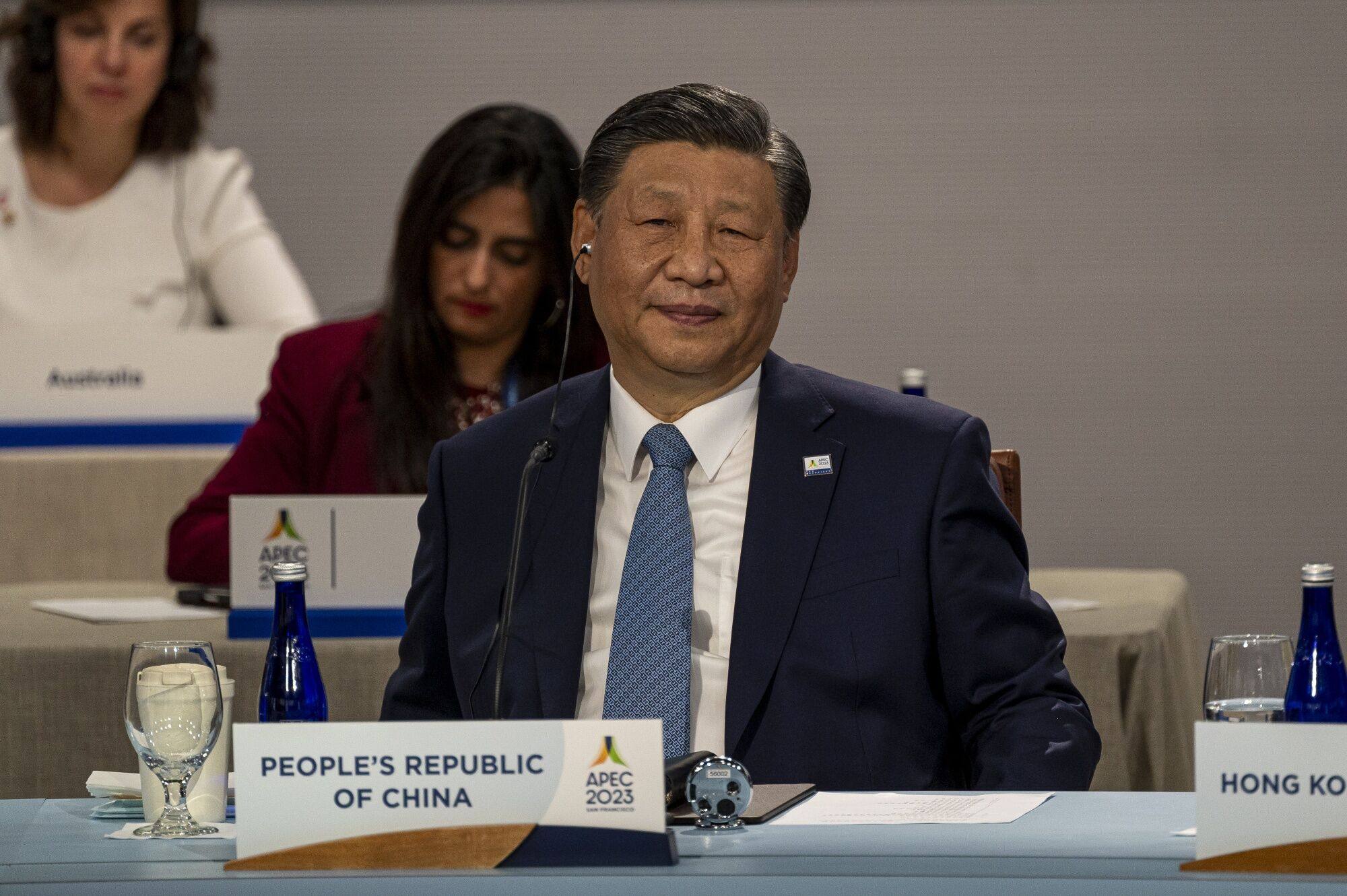Both were eager to slash the odds that a US-China crisis would distract from their domestic concerns, even as the two were keen to ensure they did not appear weak in the eyes of hardliners back home.
“Each side issued parallel statements with a different framing of the relationship,” including their views on geopolitics and economic competition, said Dominic Chiu of Eurasia Group, a New York-based consultancy.
“Trading sentiment in part recognised the lack of progress made in resolving these long-term, structural differences between the US and China, with Chinese stocks falling soon after the meeting.”
Chinese President Xi’s welcome mat may not be enough for US investors
Chinese President Xi’s welcome mat may not be enough for US investors
While the two sides have a shared interest in stability, the US came away with two items atop its wish list, analysts said.
“The administration effectively traded high-profile symbolism for practical commitments on the part of the Chinese,” said Evan S. Medeiros, a senior fellow at the Carnegie Endowment for International Peace and former National Security Council official. “That’s a pretty good deal.”

US, China must curb national security impact on trade: commerce minister
US, China must curb national security impact on trade: commerce minister
The American president also arrived at Apec buoyed by strong economic numbers indicating growth, low unemployment and declining inflation.
The Chinese leader only confirmed his Apec attendance days before he arrived – late even by Beijing’s standards. Xi also declined an invitation to speak publicly to Apec’s 21 member economies. Instead, he focused on a smaller dinner meant to reassure business leaders who paid up to US$40,000 per seat to hear in person that China was open for business.
Xi Jinping offers cooperation, reassurance during US business dinner
Xi Jinping offers cooperation, reassurance during US business dinner
“The business community has heard promises about ‘reform and opening’ from Beijing before, but business risk in China is not going down,” said Daniel Russel of the Asia Society Policy Institute and formerly with the State Department.
“It will take concrete and sustained action, not platitudes, for Beijing to rebuild confidence.”
Xi, for his part, was able to project images back home of a leader respected on the world stage in line with Beijing’s stance opposing American “hegemonic” power.
It also undercut Washington’s argument that decisions are made solely on merit, not politics, while providing fuel for Republican critics who claim Biden is selling out to Beijing.
With the two economic giants elbowing for pole position, Washington has been unable to offer any movement on trade liberalisation, which is opposed by many Republicans and Democrats, even as China forges ahead with its bid to strengthen its regional grip.
Not quite Mar-a-Lago as Xi breaks the ice with Biden, 6 years after Trump summit
Not quite Mar-a-Lago as Xi breaks the ice with Biden, 6 years after Trump summit
This “makes the US look unreliable, while Xi will continue to promise all sorts of increased trade access and economic linkages”, said Bill Bishop, author of the influential newsletter Sinocism.
Despite the long-anticipated meeting, neither side has altered its essential view of the other, analysts added.
“Correctly or incorrectly, China believes that the US is determined to block China’s inevitable rise,” said Stephen Olson of the Asia-based Hinrich Foundation.
“Correctly or incorrectly, the US believes that China is a disruptive force determined to usurp the US-led post-war global system.”
The various bilateral meetings leading up to the summit and pledged future meetings represent an important clearing of blocked political arteries, especially on the Chinese side where top-down signalling is vital to set direction for the bureaucracy.
Xi and Biden working to enhance trust, says Chinese foreign minister
Xi and Biden working to enhance trust, says Chinese foreign minister
Although China’s one-party state entertains few overt political challenges, state media leading up to the meeting seeded the ground for a conciliatory shift after months of harsh anti-US rhetoric.
“Once opened, the door of China-US relations cannot be shut again,” said Mao Ning, China’s foreign ministry spokeswoman, on Friday.
Such language echoed Xi’s remarks in San Francisco, when he stated: “Once started, the cause of China-US friendship cannot be derailed halfway. No matter how the global landscape evolves, the historical trend of peaceful coexistence between China and the United States will not change.”
Unofficial exchanges soared ahead of Xi-Biden meeting to smooth path for talks
Unofficial exchanges soared ahead of Xi-Biden meeting to smooth path for talks
Xi’s support for improved ties is a tactical shift, however, that could easily be reversed.
Biden’s assurances and extended effort to meet with Xi could be undone should he lose America’s presidential election next year. A rambunctious US Congress could push the limits on Taiwan, tech and sanctions, making Xi look weak back home.
And given the dearth of trust, a single military accident could derail the nascent warming.
The restoration of these minimal lines of communication is only likely to “buy down a small part of the risk”, according to Isaac Kardon of CEIP, a Washington-based think tank.

